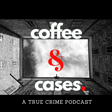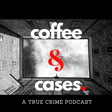
E267: Joan Gay Croft
On April 9, 1947, a monstrous F5 tornado tore through Woodward, Oklahoma—obliterating homes, claiming over 100 lives, and leaving behind one of the most haunting mysteries in American history. Four-year-old Joan Gay Croft survived the storm, injured but alive—only to disappear from a hospital basement hours later, never to be seen again. Who took her? Why was she taken? And why has no trace ever been found? In this episode, we unravel the heartbreaking case of Joan Gay Croft and the theories that still haunt investigators and listeners alike. This is not just a story about a storm—it’s about what was lost in the chaos, and the enduring hope that the truth might still be found.
If you are interested in bonus content for our show or in getting some Coffee and Cases swag, please consider joining Patreon. There are various levels to fit your needs, all of which can be found here: https://www.patreon.com/coffeeandcases

